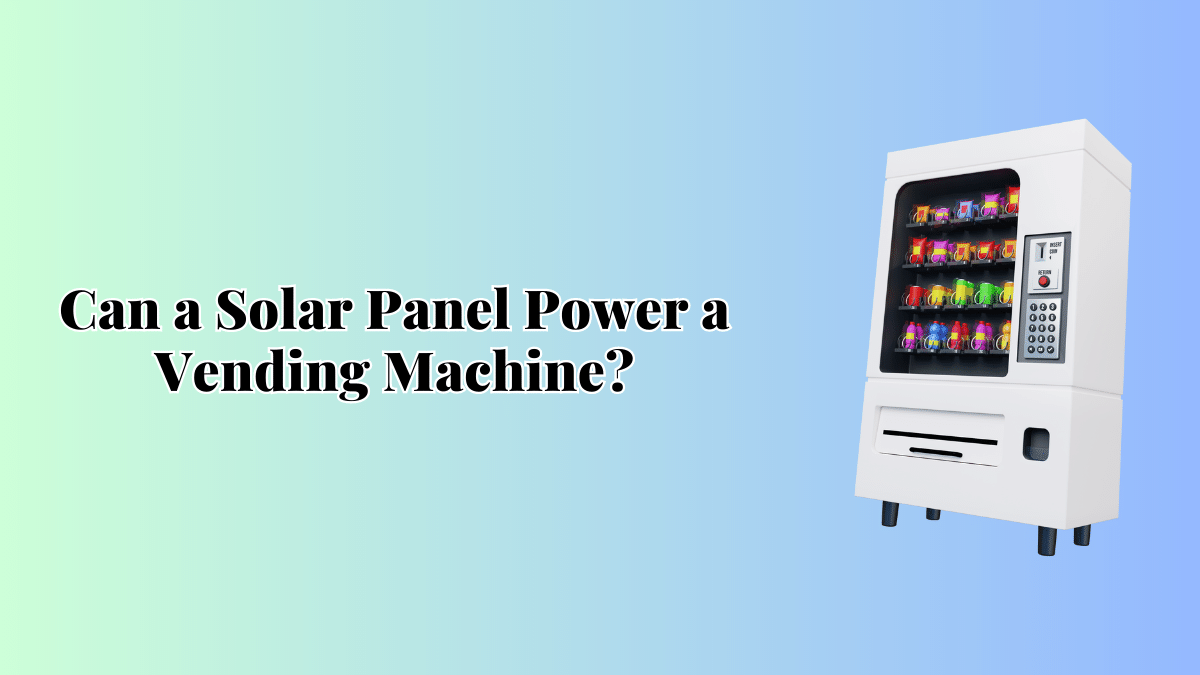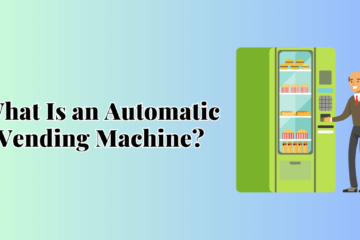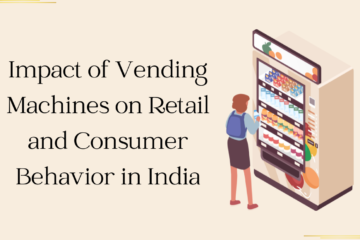In today’s world, the quest for sustainability and eco-friendly solutions is more critical than ever. As we seek to reduce our carbon footprint and transition towards cleaner energy sources, solar power has emerged as a promising alternative. The idea of harnessing the sun’s energy to meet various power needs, including vending machines, has sparked curiosity and excitement. In this comprehensive article, we will delve into the topic of whether a solar panel can effectively power a vending machine. By exploring the technology, benefits, challenges, and real-world applications, we aim to provide you with valuable insights into this innovative concept.
1. Can a Solar Panel Power a Vending Machine?
Solar power has proven its worth in powering various devices and infrastructures, but can it handle the energy demands of a vending machine? Let’s examine the potential of solar energy in vending machine applications.
2. Understanding Solar Panels and Their Functionality
Before we dive into the vending machine aspect, it’s essential to grasp the fundamentals of solar panels. Solar panels, also known as photovoltaic panels, are devices that convert sunlight into electricity. These panels consist of multiple solar cells made of semiconductor materials like silicon, which generate direct current (DC) electricity when exposed to sunlight.
3. The Viability of Solar Power for Vending Machines
i. Advancements in Solar Technology
With rapid advancements in solar technology, the efficiency and affordability of solar panels have significantly improved. Modern solar panels can capture a higher percentage of sunlight and convert it into usable electricity, making them more suitable for meeting the energy demands of various applications, including vending machines.
ii. Calculating Energy Requirements for Vending Machines
Vending machines vary in their power consumption based on factors such as size, type, cooling systems, and display features. It’s crucial to calculate the average energy consumption of a vending machine to determine the solar panel’s capacity needed to power it effectively.
iii. Energy Storage Solutions
One of the significant challenges in solar power applications is intermittent sunlight availability. To ensure uninterrupted vending machine operations, energy storage solutions like batteries can store excess energy generated during sunny periods for later use during cloudy days or at night.
4. Real-World Applications: Solar-Powered Vending Machines
i. Sustainable Initiatives by Corporations
Several environmentally-conscious corporations have embraced solar-powered vending machines as part of their sustainability initiatives. These machines serve as a visible symbol of the company’s commitment to renewable energy and green practices.
ii. Off-Grid Vending Solutions
Solar-powered vending machines are especially valuable in remote or off-grid locations where access to conventional power sources is limited or expensive. They provide a cost-effective and environmentally friendly solution for delivering products to consumers in these areas.
iii. Hybrid Vending Machines
Hybrid vending machines combine solar power with traditional electrical connections. By using solar energy during peak sunlight hours and switching to grid power during low-light periods, these machines optimize energy consumption and reduce dependency on non-renewable energy sources.
5. Challenges and Solutions
i. Energy Demand vs. Solar Panel Output
One of the main challenges in using solar panels for vending machines is the disparity between the machine’s energy demand and the solar panel’s output. This issue can be mitigated by employing energy-efficient vending machines or supplementing solar power with other renewable sources like wind energy.
ii. Cost Considerations
The initial setup cost of solar-powered vending machines can be higher than conventional machines. However, the long-term cost savings in electricity expenses and the positive environmental impact make solar-powered solutions financially viable in the long run.
iii. Weather Dependence
Solar power is subject to weather conditions, and prolonged overcast or rainy periods can affect the energy supply. Combining solar with other energy sources or implementing efficient energy storage systems can address this concern.
FAQs (Frequently Asked Questions)
- Can a solar panel power a vending machine entirely?
Yes, a solar panel can power a vending machine, but it requires careful planning, considering the energy demand, panel capacity, and energy storage solutions.
- What happens during cloudy days or at night?
Solar-powered vending machines may face energy shortages during cloudy days or at night. Implementing energy storage solutions like batteries ensures continuous operation during low sunlight periods.
- Are solar-powered vending machines cost-effective?
While the initial setup cost may be higher, solar-powered vending machines offer long-term cost savings due to reduced electricity expenses and positive environmental impact.
- Can solar-powered vending machines be used in urban areas?
Yes, solar-powered vending machines can be utilized in urban areas as long as they have access to sufficient sunlight.
- What happens if a solar panel produces more energy than the vending machine needs?
Excess energy can be stored in batteries or fed back into the grid, promoting energy efficiency and potentially providing extra revenue through feed-in tariffs.
- How do hybrid vending machines work?
Hybrid vending machines combine solar power with grid electricity, allowing them to switch between the two power sources based on availability and demand.
Conclusion:
As we strive for a more sustainable future, solar power continues to play a crucial role in transforming various aspects of our lives, including vending machines. While challenges exist, advancements in solar technology and energy storage solutions have made it increasingly feasible to power vending machines using solar panels. With corporate initiatives, off-grid solutions, and hybrid applications, solar-powered vending machines are becoming a practical reality. Embracing this innovation can lead us towards a greener, cleaner, and more environmentally responsible world.




